WEC Newsletter
The WEC quarterly newsletter explores the latest thought leadership on women empowerment and DEI, showcases the significant efforts and progress made by our committed Members, and highlights special announcements and updates about the council.
In answering the question of how to empower men and women to equally succeed, it is critical that we understand the state of the current playing field. Our 2023 Healthy Women Healthy Economies (HWHE) White Paper, commissioned by Merck, shows that professional women place career as a top factor when planning to start a family – as the one who must bear the child, women are often uncertain how their employer will treat them if they decide to have a child. In addition to maternity leave and needing to juggle much more after starting a family, some women have had to slow down or even shift their career aspirations. This is often never a consideration for men. In China and around the world, women must face this crossroad to decide how to pursue their career goals while running against their biological clock. It is never easy to choose. The feeling that they may have to sacrifice their career in order to have a family leads to the Career Dilemma faced by women and the reality is it creates inherent inequities in the workplace.
Women still bear the brunt of caregiving and housework even with equal earning power. In the past 50 years, the share of women in the U.S. who earn as much as or significantly more than their husbands has tripled, while the share of U.S. marriages where men are the sole or primary breadwinner has decreased by 30%.
Studies show that inclusion yields substantial benefits. For employers, inclusion helps to attract, retain, and leverage the full potential of a diverse talent pool and leads to more loyal, motivated, and committed employees. For employees, it increases job satisfaction, engagement, productivity, and innovation. For teams, it improves group dynamics and collaboration. For women, it reduces instances of discrimination and harassment. For customers, it enables better services and products targeted towards a more diverse customer base.
The Q4 issue delves into this year’s research and statements by the International Monetary Fund, Citi Global Perspectives and Solutions, UN DESA, World Economic Forum, World Bank, Lean In and McKinsey to present key findings on the economic implications of achieving gender equality, the impact on working women two years into a global pandemic, persisting gender disparities in leadership, and most importantly, actions that companies must take to support, advance, and retain women.
Today, Diversity, Equity, and Inclusion (DEI) are required for business success. Diversity involves attracting, promoting, and retaining diverse talent and representation. Equity requires implementing processes, practices, and programs to ensure fairness and equal opportunity by taking into account the systemic advantages/disadvantages experienced by certain groups. Inclusion is complex and difficult to measure yet incredibly important.
The benefits of flexibility to both employer and employee are undeniable. In this issue, we highlight key trends related to FWAs that are likely to impact the years ahead. Our goal is to help employers avoid pitfalls, make strategic decisions, and remain ahead of the curve.
Inspired by insights from the 2021 DEI Global Conference organized by The Conference Board, WEC highlights five key factors that can make DEI successful in your organization for consideration in Q1 2022.
